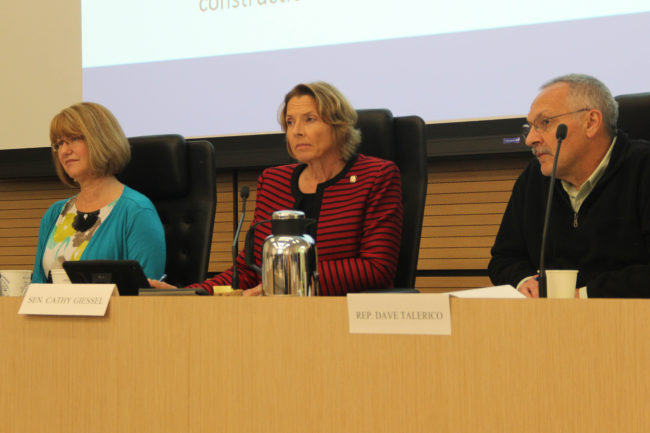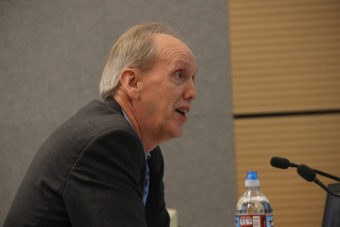
Alaska’s natural gas pipeline project, as currently envisioned, is not competitive and likely cannot succeed in the current market. That’s the conclusion of a new report from outside consulting firm Wood Mackenzie.
But, the report said, major changes, similar to those being proposed by Gov. Bill Walker’s administration, could make the project more viable.
Under the current model, Alaska is partnering with the three major North Slope producers — ExxonMobil, BP and ConocoPhillips — to build the pipeline.

Wood Mackenzie’s David Barrowman told lawmakers on Wednesday that his firm compared that project with other liquefied natural gas projects around the world, and found that it’s simply too expensive.
“The competitiveness of Alaska LNG does not rank well when compared to other…peer projects that could supply North Asia,” Barrowman said. “The ranking means that under current pricing assumptions it would certainly struggle — and even if oil prices rise to about $70 a barrel. Then it would be difficult to make acceptable returns.”
But, Barrowman said, there are ways to lower the project’s cost.
One option is bringing in outside investors to fund the gas line, instead of the partners funding it themselves. Another path is full state ownership, which might lower federal taxes.
Those are both options the state is considering as it seeks to take control of the project, said Keith Meyer, the new head of the Alaska Gasline Development Corporation.
Meyer and Barrowman testified at a joint hearing of the House and Senate Natural Resources Committees. The hearing will continue Thursday with testimony from the state’s three current partners, ExxonMobil, BP and ConocoPhillips.
